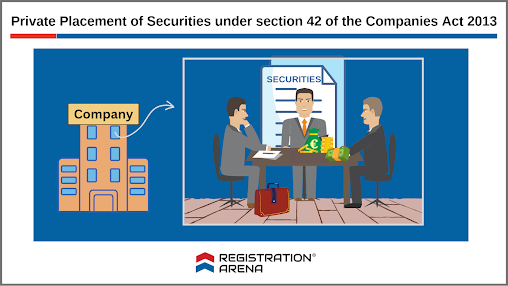Private Placement of Securities under section 42 of the Companies Act 2013
Private Placement of Securities under section 42 of the Companies Act 2013
Introduction
Companies have various methods of raising share capital, one of which is private placement. It is a technique that involves offering shares or other securities to a designated group of individuals, as determined by the company's board. Unlike a public offering through the issuance of a prospectus, private placement does not involve soliciting the general public.
According to a publication by the Reserve Bank of India (RBI), private placement typically involves offering securities to fewer than 50 persons and is exempt from the requirement of filing an offer document with the Securities and Exchange Board of India (SEBI) for review.
Definition as per the Companies Act, 2013
Section 42 of
the Companies Act talks about the offer or invitation for subscription of
securities on private placement.
Section 42(3)
defines Private Placement as, “Private Placement” means any offer or invitation
to subscribe or issue of securities to a select group of persons by a company
(other than by way of public offer) through private placement
offer-cum-application, which satisfies the conditions specified in this
section.
Applicable Forms
To file a board
resolution for approving a private placement and a special resolution for
private placement, companies must use Form MGT-14. However, private companies
are exempt from filing a board resolution in Form MGT-14 for share issuances as
per the exemption notification dated 5 June 2015. Form PAS-5 should be used to
record the list of individuals who receive the private placement offer letter.
The private placement offer letter itself must be prepared in Form PAS-4, but
the company can only issue the letter after filing the relevant special
resolution or board resolution in the Registry.
For private placements, the return of allotment
should be filed through e-Form PAS-3 along with a list of allottees and other
relevant details within 15 days of allotment. This includes their names,
addresses, Permanent Account Numbers, email addresses, class of securities,
date of allotment, number of securities held, nominal value, amount paid on
such securities, and particulars of the consideration received if the
securities were issued for consideration other than cash. Importantly, as per
Section 42(4), companies cannot use the funds raised through private placement
until the allotment is made and the return of allotment is filed with the
Registrar.




Comments
Post a Comment